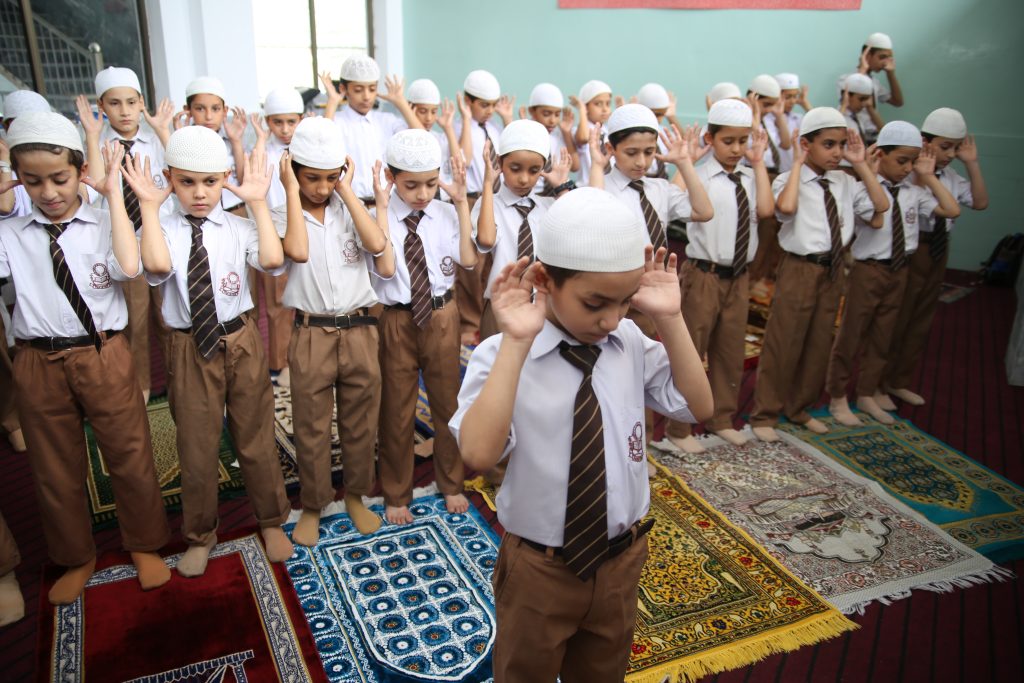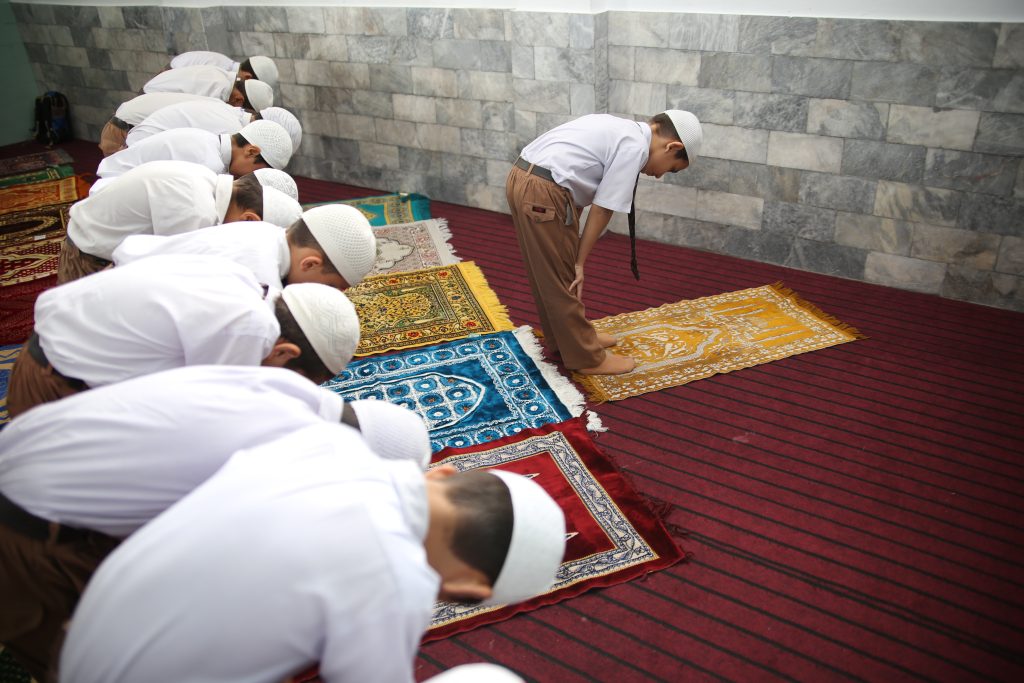The foundation of a Muslim’s lifestyle is based on the five pillars of Islam, i.e., Profession of Faith (Shahada), prayers (Salah), Alms (Zakat), Fasting (Roza), and Pilgrimage (Hajj). Salah, the second pillar of Islam, is performed five times a day. It is compulsory for all Muslims around the world to perform Salah five times a day. The legal age for performing Salah is after puberty. Which is also regarded as the age of responsibilities.
The purpose of offering Salah is to communicate with the Almighty Allah who is the omniscient, omnipotent and omnipresent. It is an opportunity for all Muslims to remember their creator and express gratitude for everything they are bestowed with. The act of prostration (Sujjud) is one of the moments when we are very close to Allah. Salah is one of the blessings of Allah for all Muslims, and it is the first pillar of Islam that every Muslim will be accounted for on doomsday.
A brief overview of Prayers (Salah):
Prayer (Salah) does not intend to be performed just as a mandatory enactment. Instead, it should be considered as a perpetual sign of the Muslim’s submission and conformity to the Almighty Allah,
Prayer (Salah) is a medium of purifying one’s soul. It is spiritual ritual that strengthens a person’s patience and tolerance towards others. Someone who believes in Allah does not considers prayers a burden but rather a golden opportunity to form a deeper connection with the Almighty Allah. Therefore, Muslims perform prayer out of devotedness and affection to express their utmost loyalty to Allah.


The DIFFERENT TYPES OF SALAH:
The following are the four types of prayer (Salah) on which the five times daily prayers are based.
1- Fardh:
This type of prayer is regarded as Imperative prayer. Anyone who misses a Fardh salah is believed to have committed a grave sin.
2- Wajib :
This type of prayer is called Obligatory prayer. Missing out Wajib Salah is considered a great sin as well.
3- Sunnah :
This type of prayer is based on the Prophet’s practice. It is further divided into two types. First, the Prophet performed regularly known as Muakkadah, and second, the Prophet occasionally performed as Ghair Muakkadah.
4- Nafl :
This type of prayer is known as Voluntary prayer. Missing out on Nafl is not considered a grave sin.
The students are equipped and familiarized with prayer (Salah) and its four types of Salah, how it is performed and what steps are to be considered to perform prayer (Salah). Furthermore, the prayers are practiced and performed loudly to enhance students’ knowledge regarding prayer and make them familiar with it. The students are educated about the different steps essential to perform prayer efficiently. The first step is intentions (Niyyah), which is the first and foremost important step for offering prayer. It is making your mind for offering prayer, the second step is Instructions (Takbeera-e-Tahmeera), it is the position you take to start the prayers, men touch their earlobes while raising both hands accordingly, women, on the other hand, raise their hand till their shoulders, the third step is Standing posture (Qiyaam), it refers to the position you take while offering a prayer, the fourth step is Bowing Down (Ruku), it relates to the part of bending to the knees with your arms and back straight, the fifth step is Instruction (Qaumah), it refers to the position that one takes after bowing down (Ruku), the sixth step is Prostration (Sajjdah), it relates to the part of touching your forehead, palms and nose with the ground by keeping your back straight, and eyes focus should be towards the nose. Moreover, the arms should not touch the ground; the seventh step is Tashahhud, which refers to the position after Prostration (Sajjadah), and lastly, Salaam, which refers to the situation in which you sit, turn your face to the right shoulder first and then to the left shoulder.
© Copyright 2023 hidayahpms.edu.pk
Best Education for your children's here


Leave a Reply